John 'Goldfinger' Palmer murder: Paramedic's concerns ignored
- Published
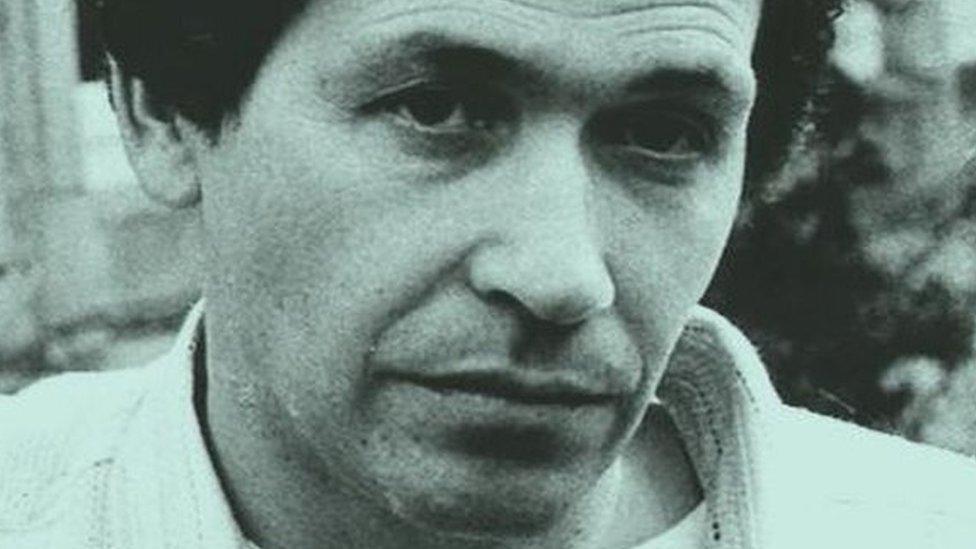
The former scrap metal dealer - John "Goldfinger" Palmer - was known for his involvement in the Brink's-Mat robbery
A paramedic called to treat a notorious criminal gunned down in his garden in Essex raised doubts about the cause of his fatal injuries, a report said.
John "Goldfinger" Palmer was initially thought to have died from natural causes in 2015. It took a week to establish he had been shot six times.
A case review revealed a paramedic told police he doubted the conman's wounds were from recent keyhole chest surgery.
But police officers at the scene were "not concerned", the report said.
Essex Police said the two officers had been disciplined "for failing to fully comply with Essex Police policy on dealing with sudden deaths" but their actions had not amounted to gross misconduct.
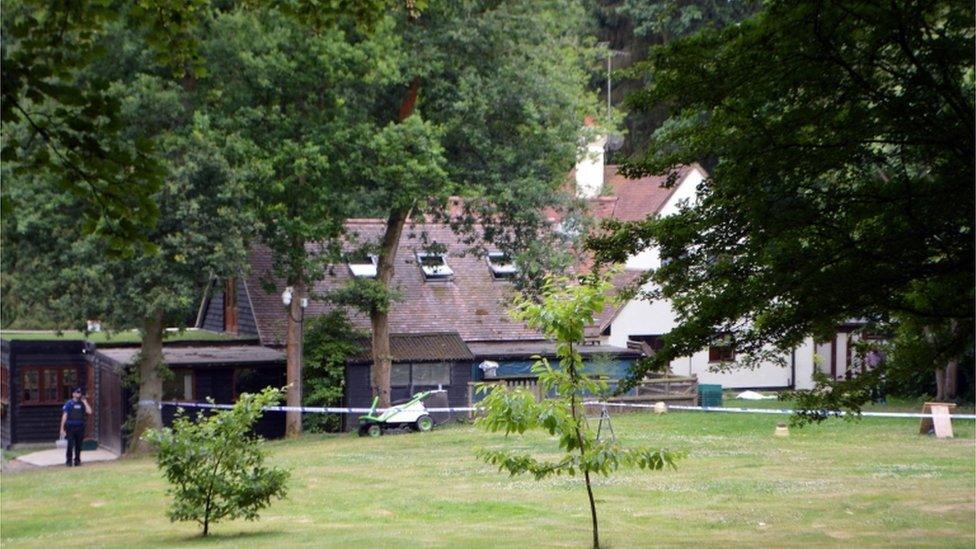
Police and paramedics were called to John "Goldfinger" Palmer's home in South Weald, near Brentwood, in June 2015
An inquest concluded Mr Palmer was shot six times with 8mm 0.32 calibre rounds outside his home in South Weald, near Brentwood, in a "contract-style" killing in June 2015.
The first paramedic at the scene found him on the ground "with large amounts of blood around the top of his shirt" and his son trying to save his life, the ambulance service review said.
According to the report, there was not one single wound but a number of "small wounds in various stages of coagulation" on Mr Palmer's chest and abdomen.
Mr Palmer's son said he was "unsure" if they were related to the surgery.
One of the paramedics, whose name has been redacted from the document, "did not feel the wounds were consistent with keyhole surgery to the gall bladder due to the location and the fact they were not covered or stitched."
"He states that he raised the matter with other clinicians on scene and the police officers but they were not concerned."
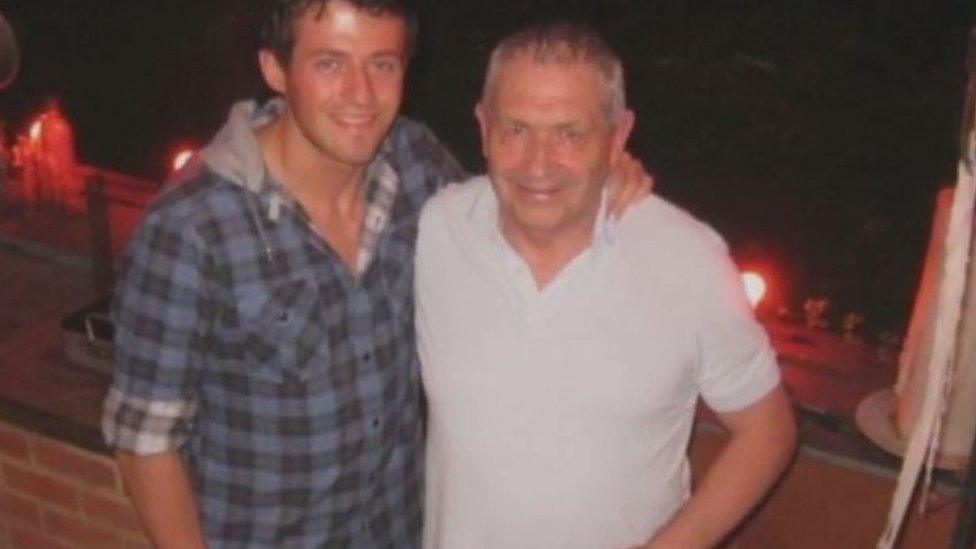
John Palmer, pictured with his son James Ketley, was receiving CPR from his son when paramedics arrived
It goes on to say the police inspected the body on their arrival, and found "another similar wound on the patient's back" - though the report does not state whether or not this was a bullet exit wound.
The police officers then asked two student paramedics to put Mr Palmer's corpse in a body bag.
During a follow-up interview with one of the paramedics, the report said, it emerged he "states there was a conversation between the two of them" in which "[redacted name] said the wounds were a bit unusual and could have been gunshots. [Redacted name] described this as an off-the-cuff remark".
The ambulance service concluded that, while different procedures may have been used if gunshot wounds had been identified, it was nevertheless "reasonable" paramedics at the scene "accepted the explanation of the injuries they were presented with" given Mr Palmer's recent operation.
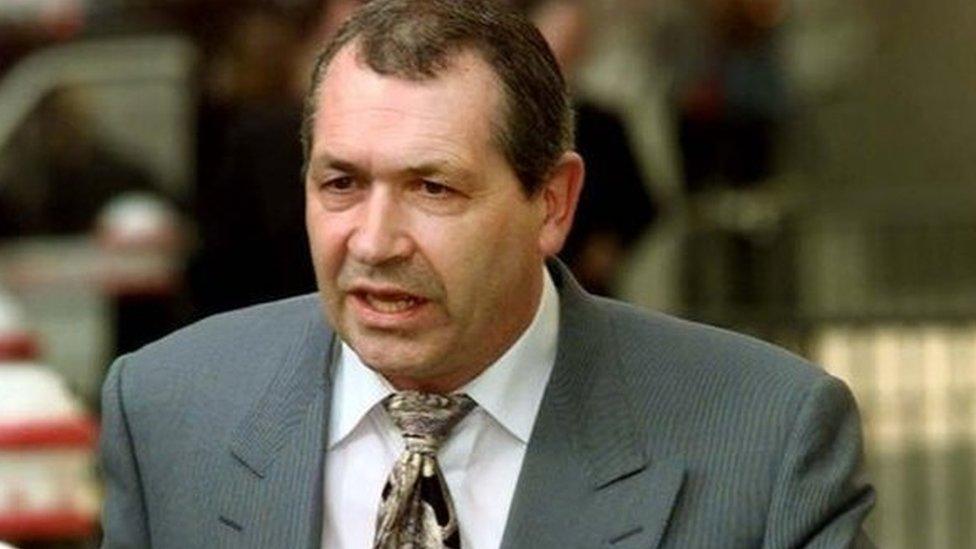
John "Goldfinger" Palmer, pictured in 2001, was a convicted conman
In a statement, Essex Police said its officers were "given information that Mr Palmer had recently had surgery and that this could account for his injuries.
"However, they did not carry out a full examination of the body, which would likely have raised suspicions about his injuries," the statement continued.
"They also did not call an inspector to the scene to confirm their assessment, or check Mr Palmer's antecedents on the police national computer.
"Given the full circumstances of the information they were presented with at the time, it was judged that this did not amount to gross misconduct and they have been given management action for failing to fully comply with Essex Police policy on dealing with sudden deaths."
In February, a 50-year-old man, originally from Tyneside but currently living in southern Spain, was questioned on suspicion of Mr Palmer's murder but was not arrested and left of his own accord after he was interviewed.
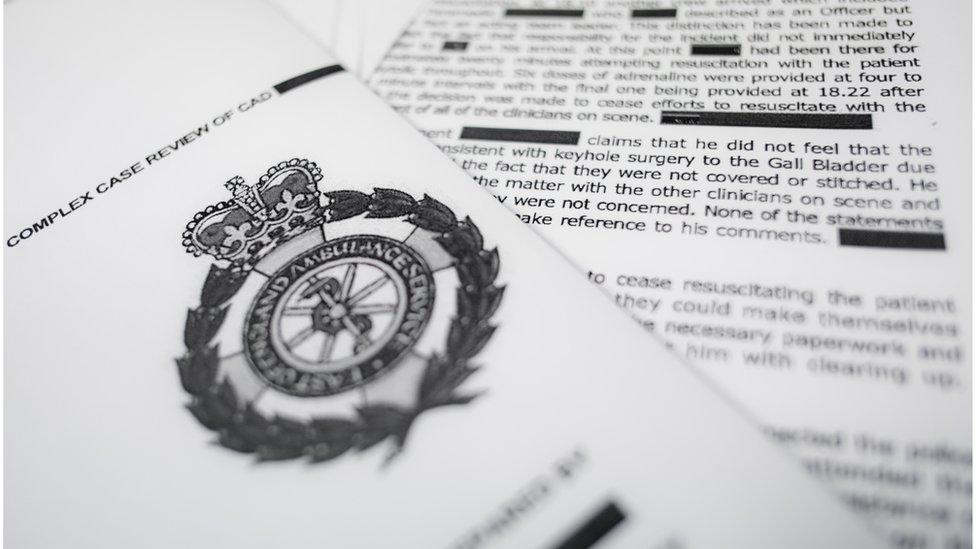
The report says a paramedic was followed by two student paramedics and then a senior paramedic in arriving at the scene
Palmer, once described as Britain's richest criminal and thought to have been worth £300m, got his nickname after he was arrested on suspicion of melting down gold from the Brink's-Mat robbery, although he was never convicted.
The Brink's-Mat robbery in 1983 took place at Heathrow Airport when £25m worth of gold was stolen. At the time it was the biggest robbery to have ever taken place in the UK, external.
Worth about £500m in 2017 prices, most of the gold has never been recovered and the case remains open.
Palmer was jailed in 2001 for a £20m timeshare fraud in Tenerife, and at the time of his death was due to stand trial in Spain on charges of fraud, firearm possession and money laundering.
- Published4 February 2017

- Published20 December 2016
